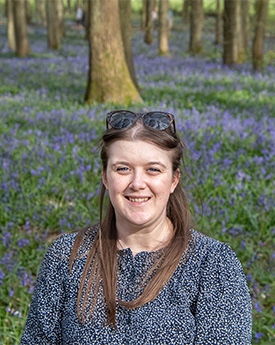How to apply
Funded PhD Studentships
Each year the Psychology Department offers several fully-funded PhD studentships (commencing the following October), as well as opportunities to apply for other studentships via the ESRC's North West Social Sciences Doctoral Training Partnership (NWSSDTP).
In all cases, we are looking for academically excellent students, who are passionate about doing research and have an exciting project they want to pursue.
For more information on funding, see the Funding Opportunities section.
For more information on the application process, please visit our Current Opportunities page.
Self-funded applications
To begin the process, you will need to find a PhD Supervisor whose research interests align with your own. You will need to contact them to discuss your application.
Your research proposal
We will require a research proposal on the area/s you are interested in joining us to study. This proposal will be used to help us determine who will be the most suitable potential academic supervisor for your research.
This step is the starting point to find a suitable supervisor who will then, if interested, contact you for a phone interview. In this interview, you will discuss the proposal and intended research, meaning your plan is not your permanent topic for your PhD studies and open to negotiation. Past guidelines have suggested the following:
- a section that defines and characterises your selected research area
- a section that briefly surveys and sums up state-of-the-art in this area
- a section that identifies deficiencies in the state of the art which you would like to address in your PhD
- a section that outlines some possible research directions that you might pursue
- a list of references that you cite in the above sections
We recommend that you submit your research interests and the PhD Admissions Tutor can pass your application onto the most relevant and available supervisor.
Apply online
To apply, create an account on the Applying for postgraduate study website.
Here you can submit applications for the programme(s) which you wish to study, upload supporting documentation and provide us with information about referees. You may apply for all our postgraduate programmes using this method.
Current Lancaster Students
If you are a current Lancaster student or have recently graduated from Lancaster, we can reduce the amount of information that you will need to provide. You will need to offer only one reference and will not need to supply your Lancaster degree transcript. We will also pre-fill your details, ready for you to check.
What to include
If you use the Postgraduate Applications website, then you will be advised which documentation you need to upload or send to us. We can automatically contact your referees once you have submitted your application if you ask us to.
The supporting documentation screen will provide you with a list of required documents. These will usually include:
- Degree certificates and transcripts of previous higher education (college/university) degrees or other courses that you have completed/for which you are currently studying. We will require a certified English translation for transcripts in languages other than English
- A personal statement to help us understand why you wish to study your chosen degree
- You also need to complete a research proposal which should include the following:
- the research area you are interested in
- the research question(s) you are specifically interested in
- who within Psychology appears best qualified to supervise you
- the methods you envisage using in your studies
- plus any other information which may be relevant
- Two references
- If English is not your first language, we require copies of English language test results
When to apply
Most of our funded PhD studentships are advertised in November and December prior to a start date in October the following year. To be considered for these studentships, please make sure to apply by mid-January/early February (see for exact application deadlines under ‘Current opportunities’). Some funded opportunities will be advertised separately, at varying times of the year. These are usually associated with a grant awarded to a member of staff and advertise a PhD position to work on that particular grant. These will be advertised under ‘Other funding opportunities’ as and when they come up. If you are pursuing a self-funded application, we strongly encourage you to aim for an October start date and apply at least 6 months before. An October start date allows you to make the best use of Department, Faculty and College induction programmes and will make sure you settle in as quickly as possible. Under exceptional circumstances, we will consider an alternative start date. Please contact the postgraduate.psychology@lancaster.ac.uk for further guidance if you have questions about this.



.jpg)
.jpg)
.jpg)






































